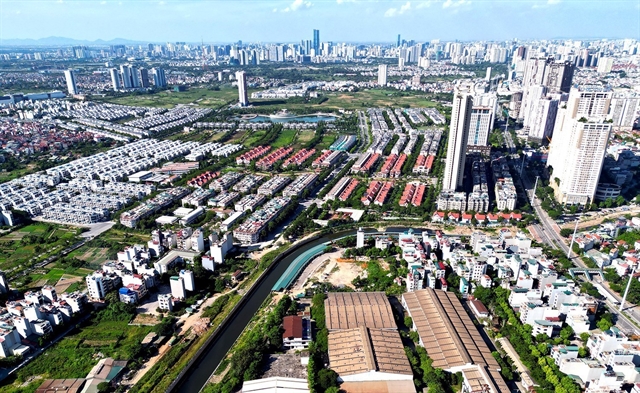Vietnam’s residential market attracts HNWIs and investors, boosted by GDP growth, urbanisation, and its “China+1” role, Knight Frank reports.

A view of Ha Dong District, Ha Noi. Vietnam’s cost-effective yet high-quality real estate offerings are attracting expatriates and investors. — VNA/VNS Photo Tuấn Anh
Vietnam’s residential property market has captured the attention of High-Net-Worth Individuals (HNWIs) and investors, driven by strong GDP growth, urbanisation, and its strategic role in the “China+1” strategy, according to Knight Frank’s report.
The Asia-Pacific Horizon Report Part 4: “Quality Life-ing: Mapping Prime Residential Hotspots” released on November 25 positions Vietnam as a standout market within the region’s luxury real estate sector.
The report evaluates 15 markets based on five indicators – Economy, Human Capital, Quality of Life, Environment, and Infrastructure & Mobility – guiding investors and prospective movers in choosing ideal locations.
With a 6.1 per cent GDP growth forecast in 2024, Vietnam stands as the second-fastest-growing economy in the region, just after India, signaling a robust trajectory for its real estate sector
The average selling price for high-end apartments in HCM City and Hanoi ranges from US$5,400 to 15,000 per sq.m, aligning with global markets but offering significant growth potential.
Ongoing development of highways, metro systems, and airports is enhancing connectivity and property values in emerging urban areas.
According to the report, Vietnam’s cost-effective yet high-quality real estate offerings are attracting expatriates and investors, particularly in districts like District 1 and Thủ Đức city in HCM City, known for their corporate hubs and tranquil riverside views.
Nguyễn Trường Anh, Research Manager at Knight Frank Vietnam, said that Vietnam’s rapid economic growth and strategic location make it a compelling destination for investors and expatriates alike. With a mix of luxury and affordability, the market is poised for long-term growth.
Kevin Coppel, Managing Director of Knight Frank Asia-Pacific, noted as global wealth shifts and geopolitical landscapes evolve, affluent individuals are seeking prime residential hotspots that provide both lifestyle benefits and financial security. Markets like Singapore, Japan, and Australia continue to attract the world’s most discerning investors.
Alongside Vietnam, other emerging Asia-Pacific markets are experiencing notable transformations.
For examples, Philippines’ Manila tops Knight Frank’s Prime Global Cities Index for the third quarter of 2024, recording a remarkable 29.2 per cent annual growth in prime residential prices. This surge is fueled by economic confidence and pre-selling prices for luxury developments.
Meanwhile, in India -the fastest-growing economy in the region with 7 per cent projected GDP growth in 2024, the residential market recorded its highest quarterly sales in the third quarter of 2024, with 46 per cent of sales in the luxury segment.
Bangkok’s prime real estate market demonstrates resilience, with over 80 per cent of available supply sold despite challenges like land scarcity and rising costs. — VNS
Read original article here